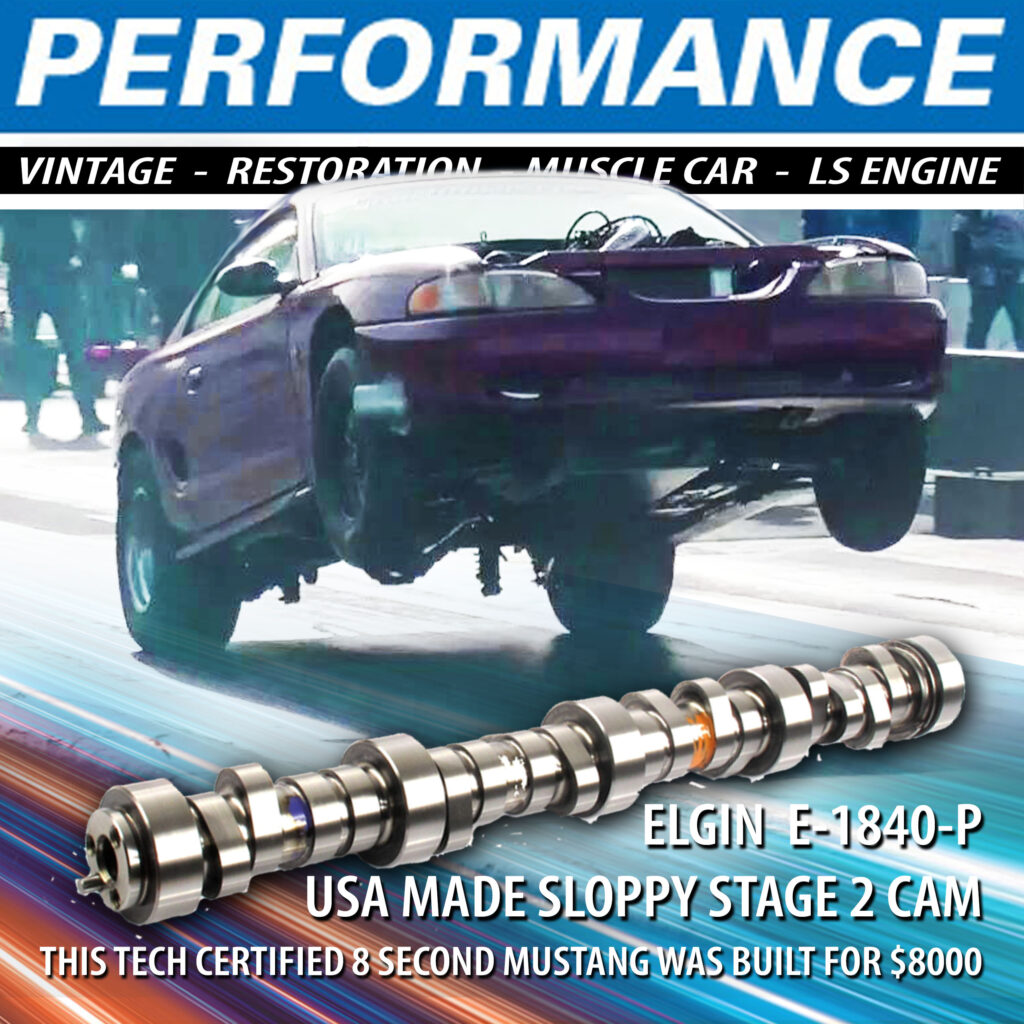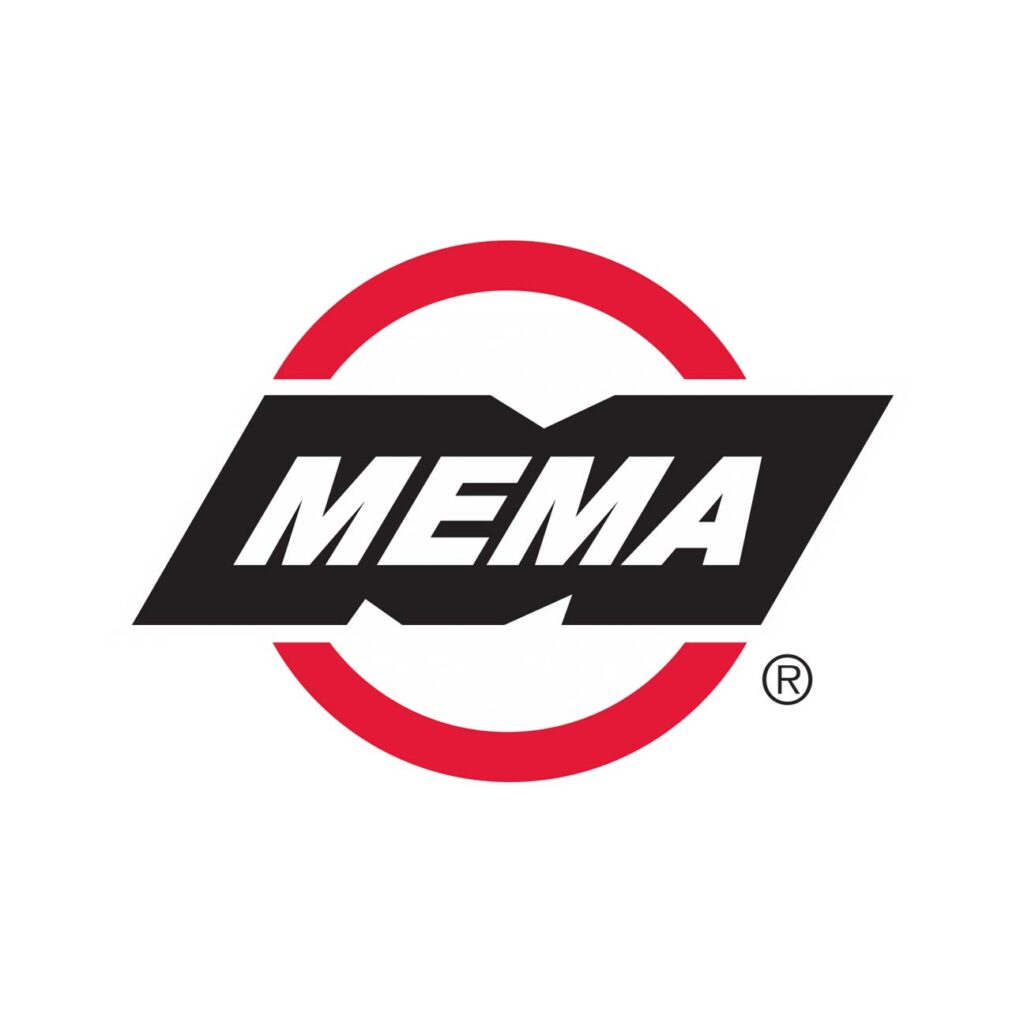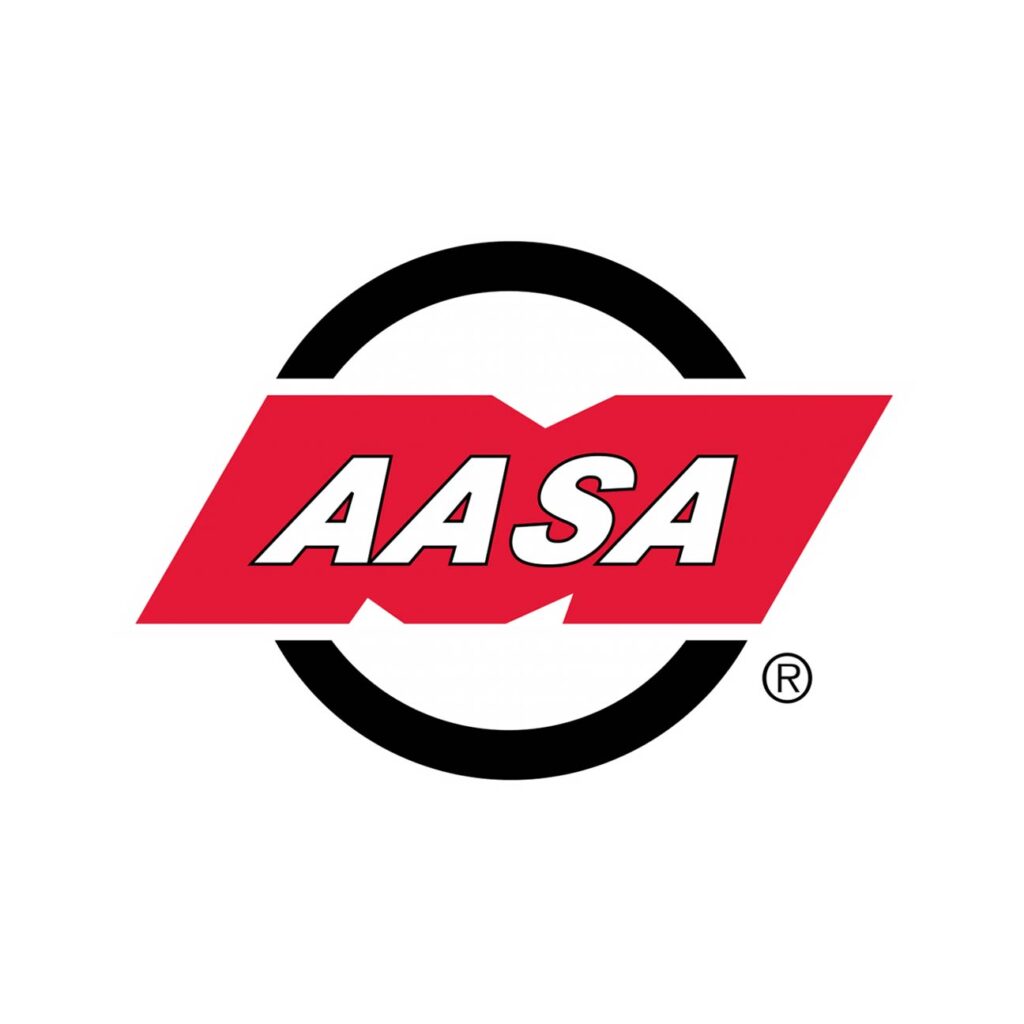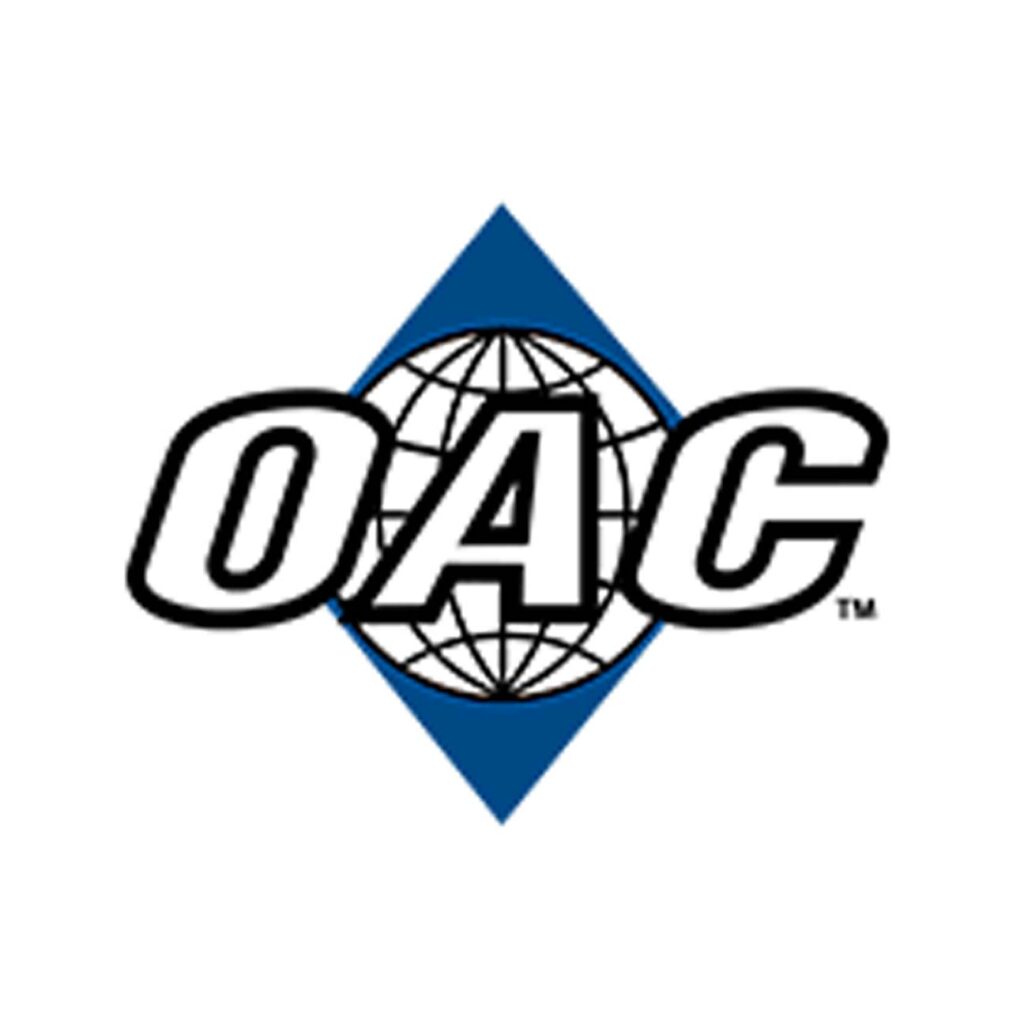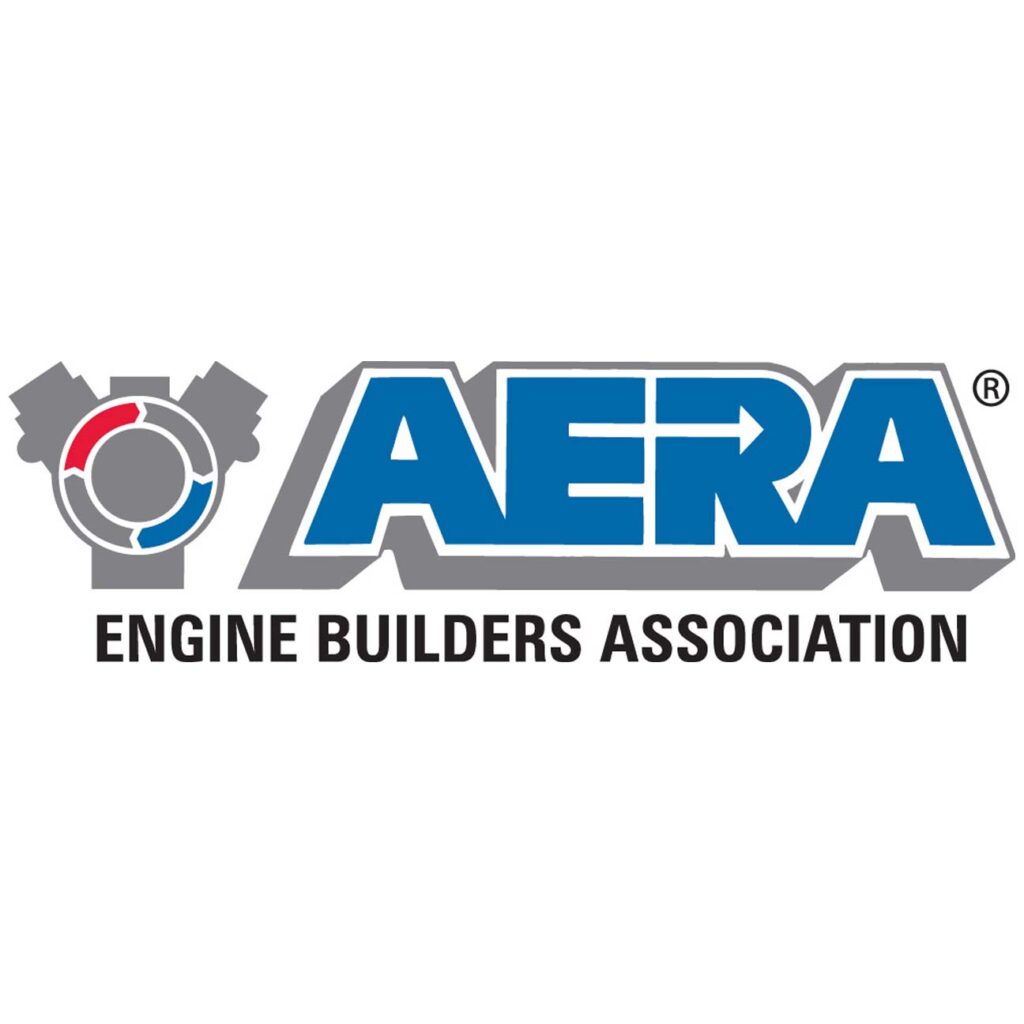Roadside failure analysis
When a 100+ year old Model T starts running on 3 out of 4 cylinders, you have to pull over to investigate. One-by-one, the rest of us in the Speedster Rally group also stopped to help.
We quickly found consistent fuel and spark, but lacked compression in one cylinder. Troubleshooting lead us to open the valve-train side-cover, where we found a problem with one valve.
The valve lock had pulled through it’s retainer, which relieved valve spring pressure, and allowed the valve to operate irregularly. The Model T is a flathead, so no valve-to-piston contact occurred.
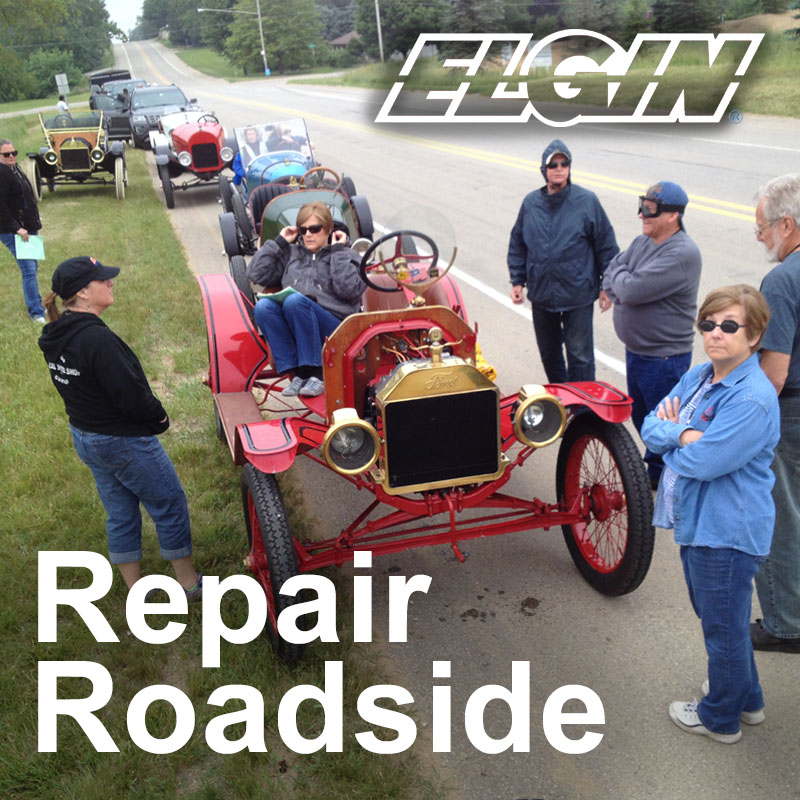
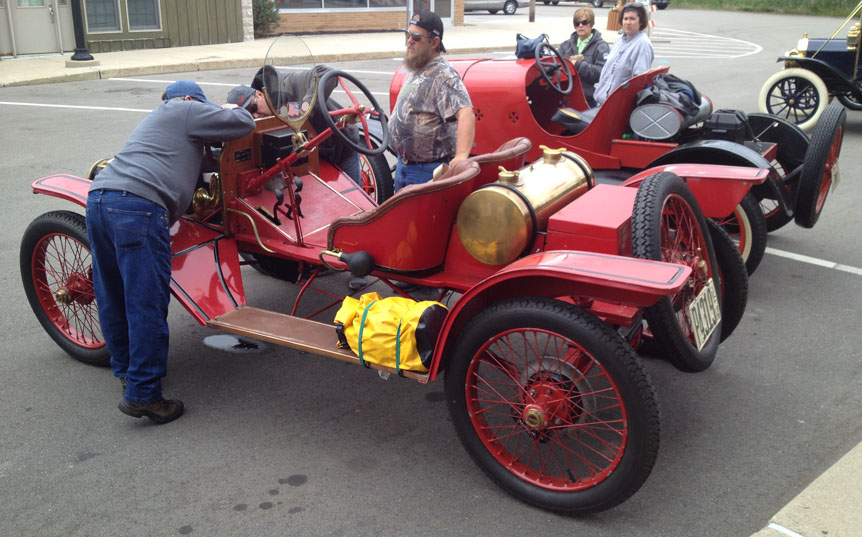
Fortunately, because the driver stopped immediately, the valve lock components were still laying next to the valve. Those loose parts could have caused further damage if the engine had kept running.
We next found a safe place to inspected the rest of the retainers, and found they were all wearing, and ready to fail. We pushed the car into the chase-trailer and went to lunch.
While eating and talking together, the driver reported that he had recently replaced all the valve train components including those retainers.
He knew exactly where he purchased the failed retainers, so we were able to find out the country of origin: China. A member of our group offered to test the sample retainer and found it to have no heat treatment.
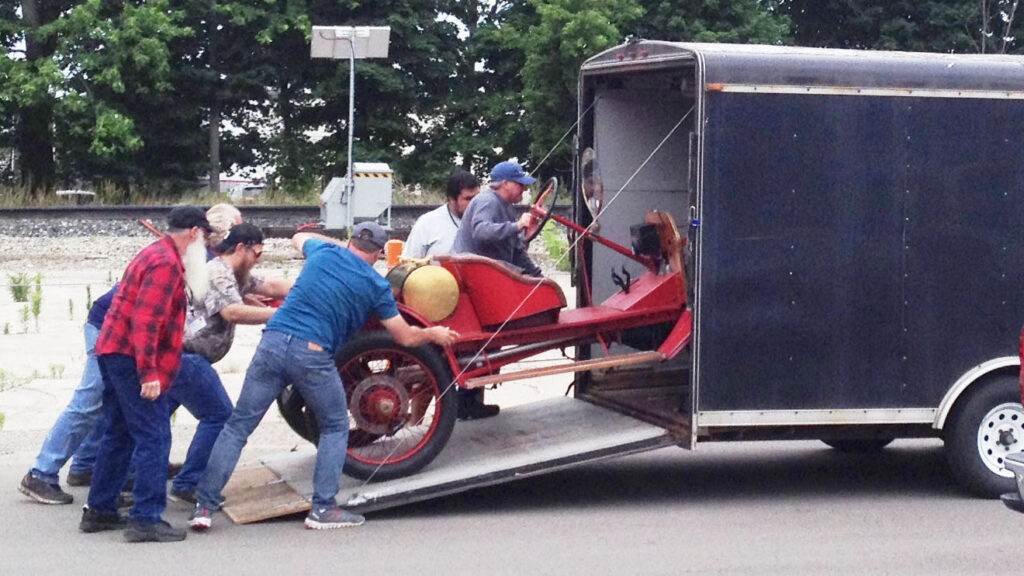
Engine Failures
When a failure involves Elgin parts, we have been identifying more of the mating components to be China counterfeit. Though some parts such as camshafts carry an Elgin part number, other parts are best identified though lab inspection.
As a Tier 1 OE Supplier, we have an extensive in-house laboratory and quality engineers. Here at Elgin, we test every batch of parts that we manufacture. We decided to check some suspect China components in both metrology and metallurgy labs.
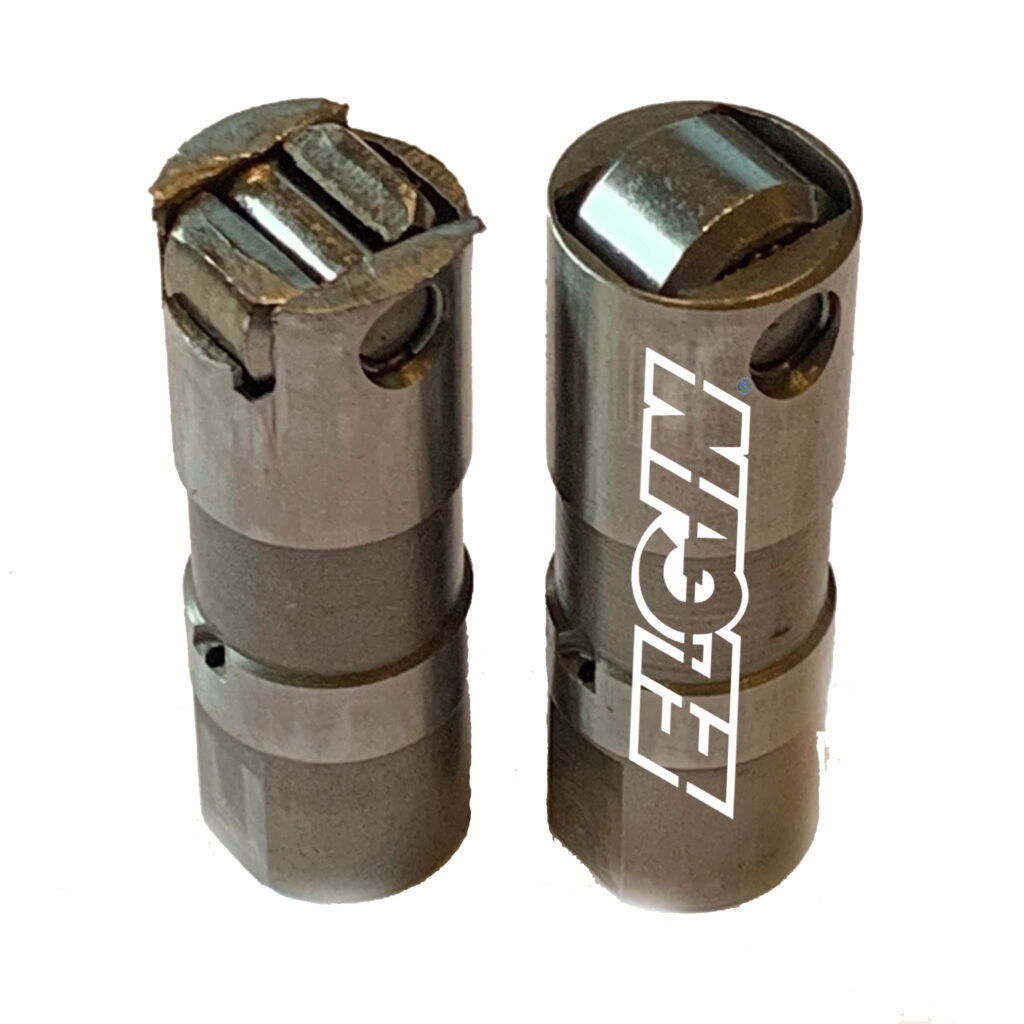
Summarized Results
Technical Specifications
Laboratory measurements found significant variances on all specifications and tolerances of the tested components. On camshafts, this includes lobe ramps, and lobe timing.
Camshaft lift and duration events are so inaccurate that the performance would be unpredictable.
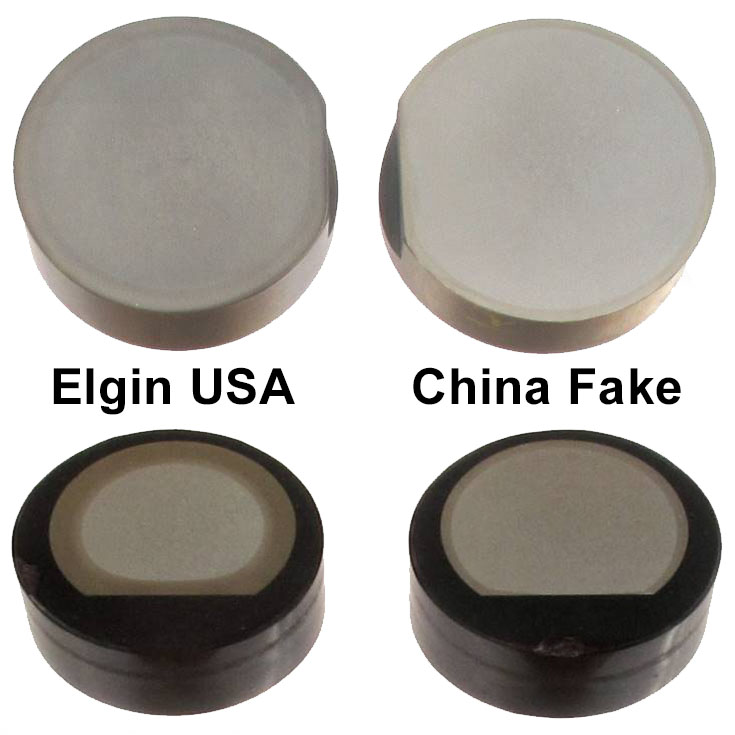
Heat Treatment
The components were not completely hardened; specifically in high load areas. China cams are literally soft cams. We found the heat treat to be inadequate; uneven and spotty in most areas.
Most machine shops and engine builders can check for Rockwell hardness at the surface. However, cross-section testing in the Elgin lab found the China components to lack case depth of the heat treat, and inferior alloy composition of the core material.
Though the comparison of some components may outwardly appear similar, the interior properties of the parts is vastly different.

Surface Finish and Machining
Though most China parts are visually okay, several of the China components have poor quality working finish.
Worse, camshaft machining and lobe surface finish are very rough. These severe chatter conditions are out of tolerance and increase friction on the lifters.
Even if the engine is balanced and blue printed, the vibrations from the camshaft and resulting unwanted harmonics will radiate throughout the valvetrain.
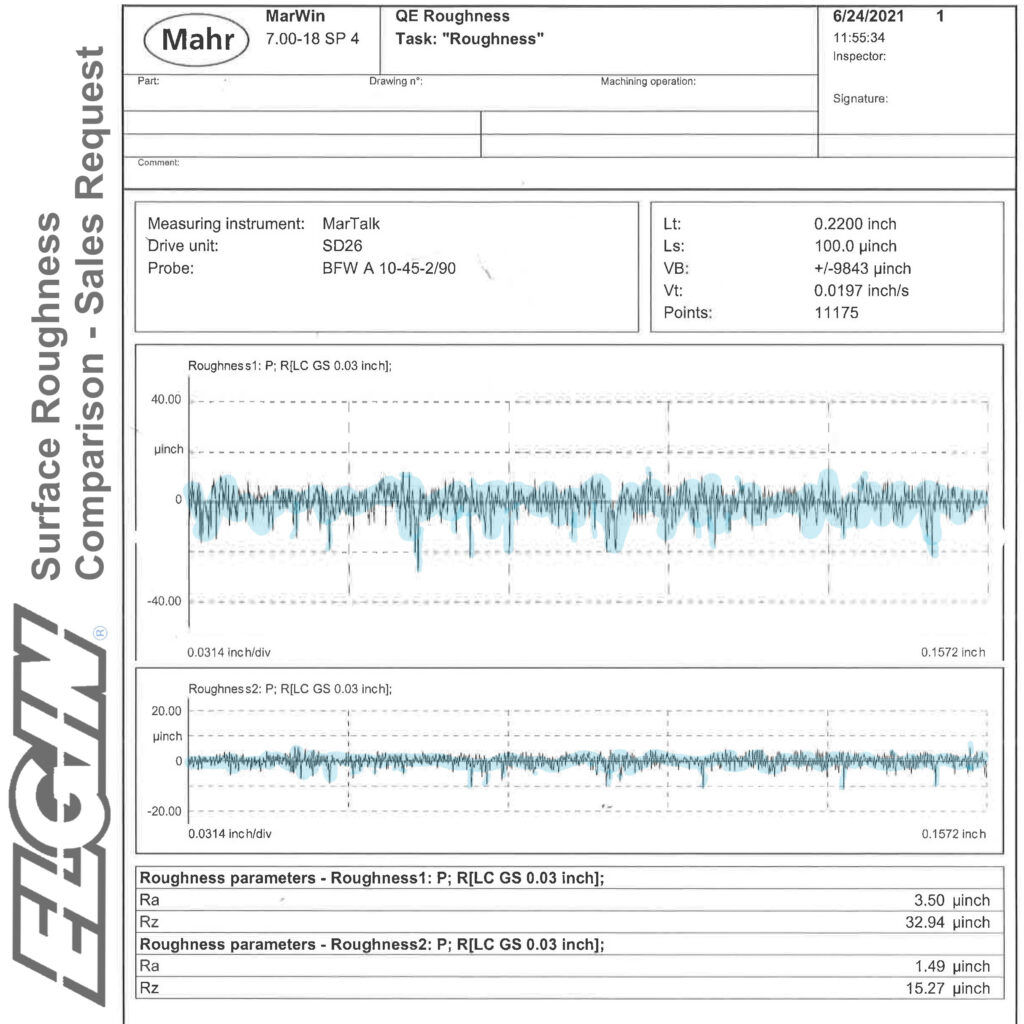
All this will cause premature failures, usually starting in valve springs, valve seats, lifter guides, and lifter rollers.
Component Coatings
The following cross-sections illustrate differences in coating thickness and cleanliness of application. The resilience will reflect on projected life spans.
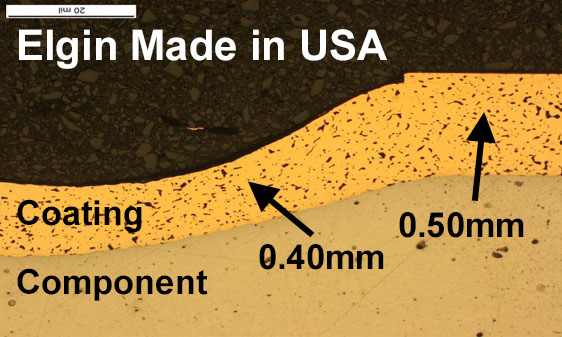
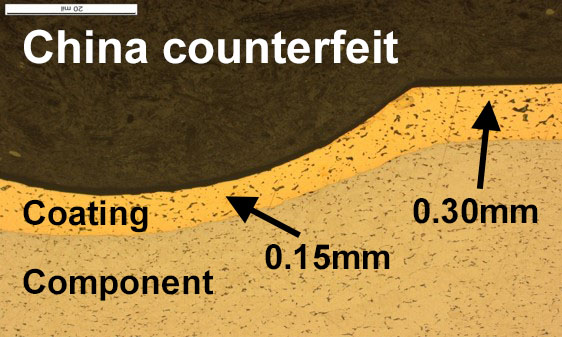
Off-shore Auto Parts Summary
Imported Made-in-China components and cams do not meet any of the critical “OEM based” design characteristics and tolerances. Beware of the cheap China counterfeit auto parts and camshafts. Engine builders are reporting terrible failures that can be traced back to poor quality lifters and camshafts.
More Information
Technical and Support pages contain more information. You may also Contact Elgin.


